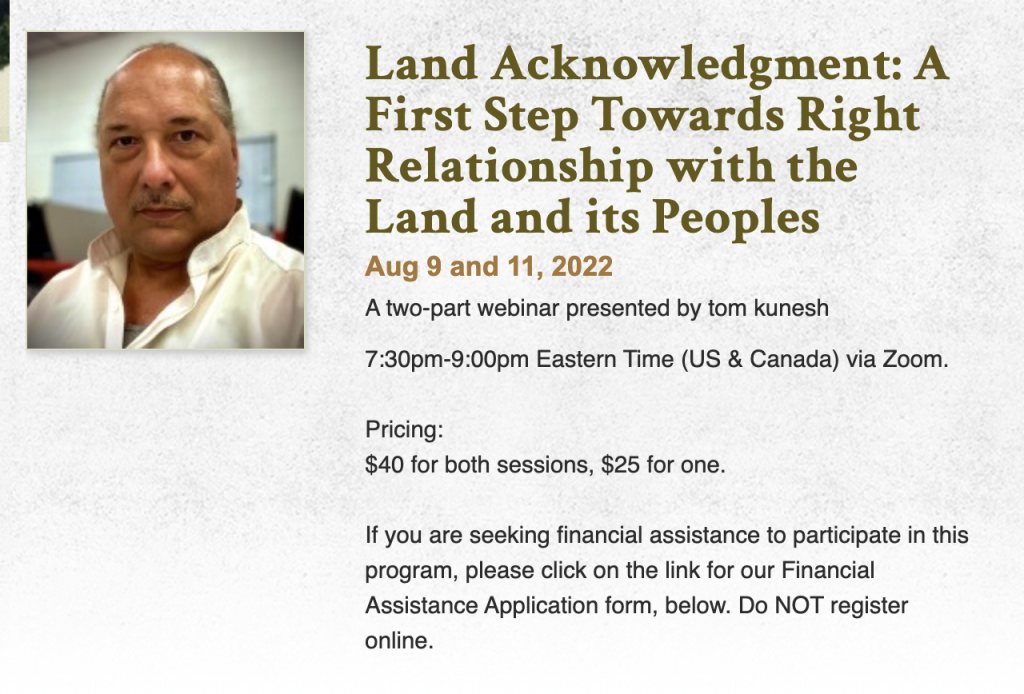Peace and Social Concerns Committee calls attention to this coming program at Pendle Hill:

To register, click here
Living on what was another peoples’ homeland through their coerced removal carries with it a generational responsibility to recognize and honor their history and their legitimate claim to places where we live. Recognizing that preparing a land acknowledgment is a first step towards creating right relationship with the land and its native peoples, we will review:
- the Euro-colonial principles and means used to take Turtle Island from its original inhabitants;
- sources for identifying accurate local native history;
- ways to correctly identify and contact culturally affiliated tribes; and
- current land-return movements in the United States.
We undertake this review centering the ultimate goals of writing land acknowledgments, including relationship building, identifying and restoring erased history of local sites, and returning land to native peoples.

To enhance your experience of the webinars, consider consulting the following resources:
1961 – Frantz Fanon, The Wretched of the Earth
1986 – Ngugi wa Thiong’o, Decolonising the Mind: The Politics of Language in African Literature. Some excerpts can be found here: africaspeaks.com/reasoning/index.php?topic=5770.0;wap2
2009 – Chimamanda Ngozi Adichie, The danger of a single story: youtube.com/watch?v=D9Ihs241zeg (19 minutes)
2012 - Tuck & Yang, “Decolonization is not a metaphor”: clas.osu.edu/sites/clas.osu.edu/files/Tuck%20and%20Yang%202012%20Decolonization%20is%20not%20a%20metaphor.pdf
2018 - Liz Nicholson, “Quakers are Colonizers”: quakervoluntaryservice.org/quakers-are-colonizers/
2019 Decolonizing Quakers – Seeking Right Relationship with Indigenous Peoples: decolonizingquakers.org
The resource list from Summer 2020: https://pendlehill.org/fall-conference-2020/working-towards-right-relationship-resources/
Leader(s)
tom kunesh and twelve siblings were born to a Standing Rock lakota tribal member mom and a white lawyer dad, and grew up good-and-catholic in Minnesota on what had been dakota & anishinaabe contested land. He joined the Navy for adventure and the GI Bill, became a linguist, served in the Persian Gulf, Indian Ocean, and Spain, and studied religion. He works today at being a dad, protecting and educating about indigenous sites in Tennessee, attends Nashville Friends Meeting, and hangs out at the intersection of religion, decolonization, atheism, and quiet.
For more information, click here.
